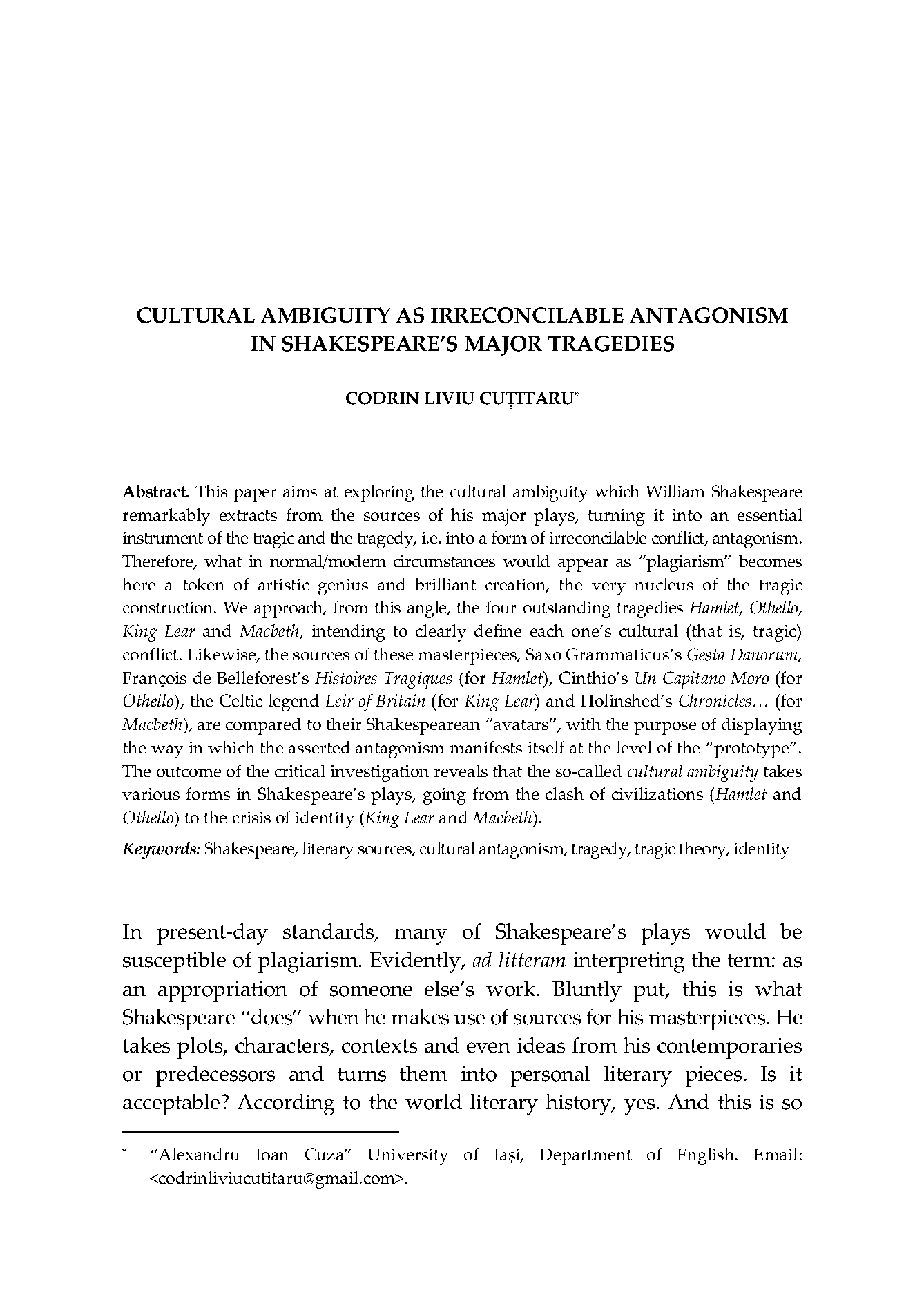CULTURAL AMBIGUITY AS IRRECONCILABLE ANTAGONISM IN SHAKESPEARE’S MAJOR TRAGEDIES
DOI:
https://doi.org/10.62229/aubllslxxii/1_23/1Cuvinte cheie:
Shakespeare, literary sources, cultural antagonism, tragedy, tragic theory, identityRezumat
This paper aims at exploring the cultural ambiguity which William Shakespeare remarkably extracts from the sources of his major plays, turning it into an essential instrument of the tragic and the tragedy, i.e. into a form of irreconcilable conflict, antagonism. Therefore, what in normal/modern circumstances would appear as “plagiarism” becomes here a token of artistic genius and brilliant creation, the very nucleus of the tragic construction. We approach, from this angle, the four outstanding tragedies Hamlet, Othello, King Lear and Macbeth, intending to clearly define each one’s cultural (that is, tragic) conflict. Likewise, the sources of these masterpieces, Saxo Grammaticus’s Gesta Danorum, François de Belleforest’s Histoires Tragiques (for Hamlet), Cinthio’s Un Capitano Moro (for Othello), the Celtic legend Leir of Britain (for King Lear) and Holinshed’s Chronicles… (for Macbeth), are compared to their Shakespearean “avatars”, with the purpose of displaying the way in which the asserted antagonism manifests itself at the level of the “prototype”. The outcome of the critical investigation reveals that the so-called cultural ambiguity takes various forms in Shakespeare’s plays, going from the clash of civilizations (Hamlet and Othello) to the crisis of identity (King Lear and Macbeth).




